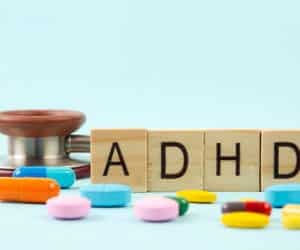Why Prescribing ADHD Medication Has Its Setbacks

Parents Should be More Questioning When it Comes to Certain Prescription Drugs
Many parents who have a child who is struggling with ADHD (Attention-deficit Disorder) may get a doctors prescription in order to manage the symptoms of this disorder. The unfortunate thing is that these medications come with certain side effects and hold the possibility of abuse if they are not taken correctly. Parents need to understand the side effects and dangers of these intense prescription medications prior to letting their kids take them. Understanding the effects of this drug can help parents better manage their children’s condition without having to worry about adverse effects.
There is a new concern of medications that are prescribed for children with various types of hyperactivity disorders. These prescription drugs may put kids who take them, at an increased risk of addiction later on in life. These drugs are often issued to kids whose minds are still in a rapid stage of development. To flood the brain with drugs at such a young and vulnerable stage of growth can have detrimental effects on the future of the individual due to the change in brain chemistry.
Addiction is Factor
With many types of prescription drugs, dependency and addiction are always a risk factor; this is simply the nature of doctor-prescribed drugs. Some individuals are predisposed to the disease of addiction and when they are introduced to strong medications at an early age, they are at an increased risk of addiction to substances of abuse later on in life. Since medication for ADHD is often a stimulant drug, it can lead to addiction in the future as stimulants are often heavily addictive.
Another factor to consider is withdrawal symptoms. Depending on the prescription medication that the individual is taking, there is the chance of experiencing withdrawal symptoms. It’s important that if you are thinking of switching prescription medications or are considering stopping altogether, that you wean your body off of the substance.
Some withdrawal symptoms that individuals may experience are:
- Irritability
- Fatigue
- Anxiety
- Hunger
- Insomnia
- Seating
- Nausea
- sweating
Withdrawal symptoms can often be unbearable for adults let alone a child. If you plan on switching your child’s ADHD medication, consider weaning them off in order to mitigate any withdrawal symptoms.
Common ADHD Medications
Some of the most common ADHD medications are:
- Adderall (a stimulant drug)
- Ritalin
- Vyvanse
- Dexedrine
- Evekeo
- Strattera (a non-stimulant drug)
- Concerta
Depending on the symptoms that your child is experiencing, the appropriate ADHD medication will be prescribed. Some of these medications, such as Ritalin, are released into the bloodstream almost immediately while others are slow-release tablets. Some individuals are better candidates for long-lasting stimulants, which can last anywhere from six to 12 hours, while others are better suited for short-lived stimulant drugs which can last anywhere from three to six hours.
Your doctor will conduct a patient assessment which will determine which medication is best suited for the individual based on certain criteria. It’s important that parents do extensive research on the drugs and understand the long-term effects prior to issuing the drug to their child.
If you or a loved one needs help with abuse and/or treatment, please call the WhiteSands Treatment at (877) 855-3470. Our addiction specialists can assess your recovery needs and help you get the addiction treatment that provides the best chance for your long-term recovery.
